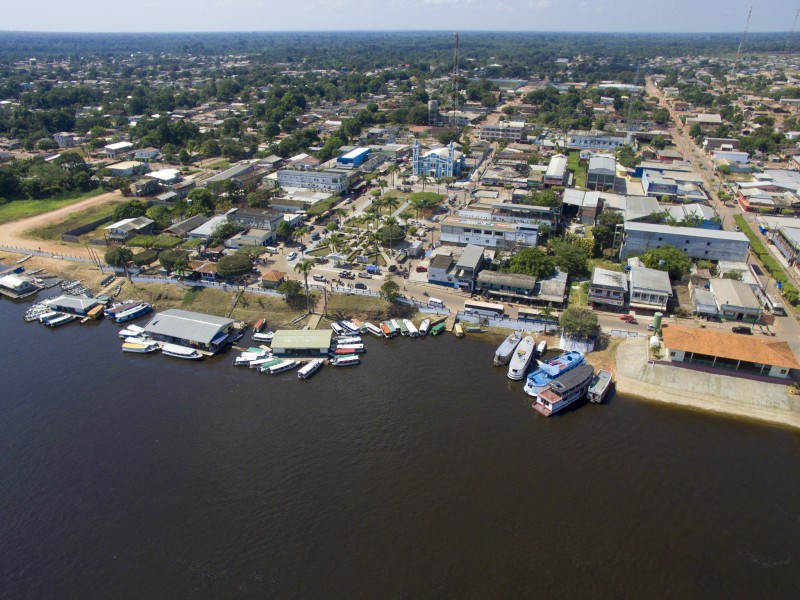
Brazil’s agricultural sector is a major factor in global food security, contributing approximately 30% to the nation’s GDP. This sector has positioned Brazil with a significant trade surplus, a trend recently highlighted by Robin Brooks, Chief Economist at the Institute of International Finance. Brooks stated, “Brazil’s massive trade surplus this year gets dismissed as an outlier event, but it isn’t. There’s been a gradual move towards bigger and bigger agricultural exports which power the trade surplus. This trade surplus isn’t an outlier. It’s a lasting transformation.”
In 2023, Brazil is poised to surpass $100 billion in agricultural exports, an amount unmatched by any other South American country. This economic strength is further strengthened by Brazil’s stable currency, high employment levels, and robust foreign exchange reserves. Despite some unresolved economic challenges, the collective efforts of Brazilian farmers, companies in the sector, and government support at federal and state levels have laid a solid foundation for wealth creation and distribution.
The global climate of instability has impacted food security and the availability and pricing of essential commodities. For Brazil, potash, a key fertilizer component, has emerged as both a strategic and vulnerable resource. Potash enhances plant resilience against drought, temperature extremes, and pests. The global potash market is largely dominated by Canada, Russia, and Belarus, who historically have supplied over 80% of the market. The Russian invasion of Ukraine and subsequent trade restrictions on Russia and Belarus led to a dramatic increase in potash prices, from $250 to over $1,200 per ton. This spike presented Brazilian farmers with not only increased costs but also the risk of interrupted potassium chloride shipments. Diplomatic efforts were made to ensure the continuity of potash supplies, which also resulted in substantial payments to Russia during its invasion of Ukraine. Had potash prices remained at $1,200, Brazil would have faced an expense exceeding $16 billion, a significant burden given the country’s extensive potash reserves.
Brazil, which imports 98% of its potash needs, has seen a tenfold increase in its usage per hectare, coinciding with increased agricultural yields. Now, Brazil possesses a world-class potash deposit in the Amazonas State, comparable to those in Canada, Russia, and Belarus – the Autazes Potash Project by Brazil Potash. This deposit, located approximately 850 meters underground, is a remnant of an ancient sea. The proposed extraction and processing techniques are similar to those used in Canada, which involve mining the ore (salt), extracting the potash, and reintegrating the sodium chloride tailings underground. This project is environmentally advantageous, particularly considering the lengthy transportation of Canadian potash to Brazil and Brazil’s predominantly renewable energy grid.
The strategic importance of this resource for Brazil and global food security is evident. However, there are potential benefits for the Mura indigenous communities near the project and who live in the state. Currently, Brazilian farmers pay royalties to indigenous communities in Canada through Canadian mining companies. Canpotex, a Canadian firm, has exported over 50 million tons of potash to Brazil, resulting in payments of approximately $17.5 billion. These royalties support community wellbeing, employment, and business opportunities for indigenous groups in Canada.
In contrast, the Indigenous Mura Council (CIM), representing 36 tribes and over 12,000 indigenous people near the Autazes potash project in Brazil, has shown support for the project following a comprehensive consultation process. The project, which is not located on a reserve, is crucial for Brazil and its agricultural sector. The benefits, including shared prosperity with the residents of Autazes, local indigenous communities, and the State of Amazonas, underscore its potential to contribute significantly to global food security.
Food security has been highlighted at the United Nations, COP28, and other global summits where world leaders have tried bringing attention to this critical issue. Now, the world will look to projects that can help secure a future with steady agriculture around the world, with potash mining and projects like the Autazes Potash Project ready to help meet those goals.



 Follow us on Twitter
Follow us on Twitter Become our facebook fan
Become our facebook fan










Comments are closed.